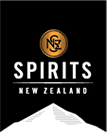Cheers to Summer Spirits
When the summer season shines on us a spirited sip is superb. Some spirits are simply better suited for sizzling weather. Over the coming months we’ll be showcasing Gin, Vodka and Tequila; three popular white spirits that make a welcome and refreshing drink on a warm summer’s day.
Gin is one of the world’s most consumed spirits. Although gin originated in Holland and developed into its most popular style in England, its most enthusiastic consumers are to be found in the USA and Spain, which boast the highest per capita consumption rates. Gin is also New Zealand’s favourite white spirit.
Gin is usually distilled from grains such as wheat or rye and this results in a light-bodied spirit. To infuse gin with its characteristic taste, producers redistill it, usually in a old-fashioned pot still. It is during this distillation that various botanicals (herbs and spices) are added, in varying proportions.
The primary botanical used is the highly aromatic, blue-green berry of the juniper bush. In fact the word ‘gin’ comes from ‘genever’, the Dutch word for juniper. Other botanicals commonly used to flavour gin include anise, angelica root, cardamom, cassia bark, cinnamon, coriander, fennel, and lemon zest. Some even use sage, rose petals and cucumber. All gin distillers have their own secret combination of botanicals, the number of which can range from as few as four to as many as 15.
Some low-quality gins are made simply by mixing the base spirit with juniper and botanical extracts, without redistilling. Top-quality gins on the other hand are often distilled two or three times. It is during the final distillation that the flavouring takes place. Alcohol vapour is released into a chamber in which the dried juniper berries and other botanicals are suspended. The vapour extracts the aroma and flavours from the botanicals and then travels to a condenser. The resulting spirit has a noticeably more complex taste and therefore produces a superior drink.
There are a variety of different classifications of gin. London Dry Gin, is in fact dry and the most popular gin around the world. It lends itself particularly well to mixing. Plymouth Gin is relatively full- bodied when compared to London Dry Gin. Plymouth Gin can only be made by one distillery in Plymouth, which also controls the right to the term Plymouth Gin. Despite its name, Sloe gin is not a gin but a liqueur and Genever is a Dutch-style drink that uses a different distillation method.
Martinis are perhaps the best-known gin-based drink thanks to its iconic Hollywood status. With a varying ratio of gin to vermouth, the revival in popularity of the Martini has undoubtedly been helped boost gin sales recently.
Switching vermouth for tonic gives us the famous G&T. Particularly refreshing on a hot summers day, the drink originated as a way for Englishmen in tropical colonies to take their daily dose of quinine to ward off malaria.
As is usually the case with most popular spirits, consumers have the choice whether to buy premium gin made by long-established and celebrated distillers or low-grade imitations. Top-quality gins are marketed under recognisable, international brands that can always be trusted to produce a superior drink.
Contact Info
Spirits New Zealand
PO Box 10 612
Wellington 6143
New Zealand
Ground Floor
17 Garrett Street
Te Aro
Wellington
Telephone : +64 4 473 8054
Email: admin@spiritsnz.org.nz


